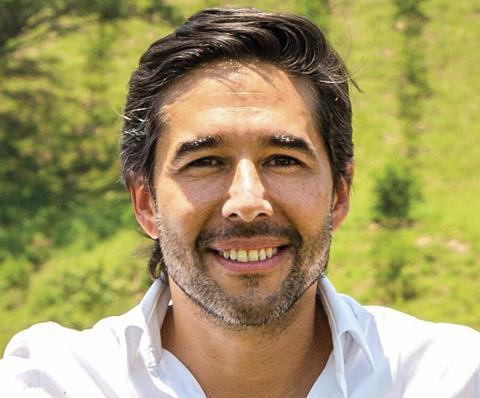Equilibria Agro is taking advantage of growing demand to transform lives in rural Colombia

Growing international demand for Colombian limes is fuelling an export boom in the country. New company Equilibria Agro recently exported its first consignment to the US market and is on course to ship 70 containers of limes this year.
The company grows, packs and exports Persian limes from its own farms, which currently extend across 300ha in the departments of Antioquia and Caldas, and those of small and medium-sized producers. It also operates the third largest lime nursery in Colombia and has developed an app-based technology platform to monitor and manage its farms.
CEO Juan Pablo Duque describes Equilibria Agro as a “carbon-negative agricultural ecosystem”. “Seven months ago, we opened this entire ecosystem to small and medium-sized producers, providing them with technical assistance, an app to keep track of their work, and access to international markets,” he explains. “Equilibria allows producers to take their operation to another level and produce outstanding quality limes which they can then export.”
According to Duque, just 6 per cent of Colombia’s lime production is registered by the Colombian Institute of Agriculture (ICA) for export, even though they are highly valued in the international market for their high juice content and exceptional flavour.
“Through our experienced team and knowledge of the market, we are able to guarantee a supply of fully traceable, socially and environmentally sustainable premium quality limes,” he says. “Right now we have close to 150 producers in different departments of Colombia, adding another 400ha to our own 300ha. Our goal is to reach 2,000ha – 500ha of our own and 1,500ha of affiliated producers – by 2026, giving us an annual export volume of 1,000 containers.”
The company’s farms are GlobalGAP, Smeta, Carbon Negative, ICA and Biodiversity Action Plan-certified and it is in the process of obtaining Human Rights Due Diligence certification.
One of Colombia’s big advantages is that it is able to grow Persian limes year-round due the variation in topographies and altitudes. But prices are heavily influenced by seasonal supply fluctuations on the global market. In the US, for example, around 95 pe cent of imported limes come from Mexico and the best prices for Colombian limes are in the February to April window when Mexican supply is lowest. In Europe, Duque says the best price window is from July to September. Nevertheless, the company’s goal is to establish 12-month programmes with key partners.
“Our aim is to become a one-stop solution for retailers and distributors looking for a constant supply of high-quality limes grown in an environmentally friendly way and guaranteeing fair prices and wages to the producer,” he says.
“We have a very experienced person managing the European market who was previously manager of a major German distributor knows the market very well.”
Despite Colombia’s many advantages – year-round production, proximity to markets, plentiful rainfall being among them – it also faces challenges if it is to develop its lime industry. Ironically, the very factor that enable it to grow a range of produce year-round also hinders the transportation of fruit from the farm to the port. The mountainous terrain – together with the country’s poor road infrastructure – mean journeys can often take several days.
“Colombia is a country with a challenging topography, plus some rain, which sometimes makes logistics difficult due to landslides,” Duque acknowledges. “However, in recent years, the government has been making large investments in dual carriageway roads, tunnels, viaducts and ports. For example, our farms are now just 4.5 hours from the new Port of Antioquia, which is due to begin operations in January 2025.”
Duque is optimistic about the future of Colombian limes. Their dark green colour and high juice content appeals to consumers, and so too does the country’s sustainable image. “Colombia produces limes in areas with abundant water, and it is the second most biodiverse country in the world, so lime operations coexist happily with tropical rainforests,” he says. “We see our job as transmitting our knowhow to small producers, so that together we can produce clean and environmentally friendly limes.
I see a very bright future for our fruit. Demand is growing, particularly in the US, and we expect shortly to gain access to the Chinese market. Our purpose is to transform lives with sustainable agriculture and fairtrade, empowering small producers, through our technology platform and the training and technical assistance we provide. This is the formula to reduce poverty, reach rural areas with opportunities and consequently achieve a country with true peace.”



